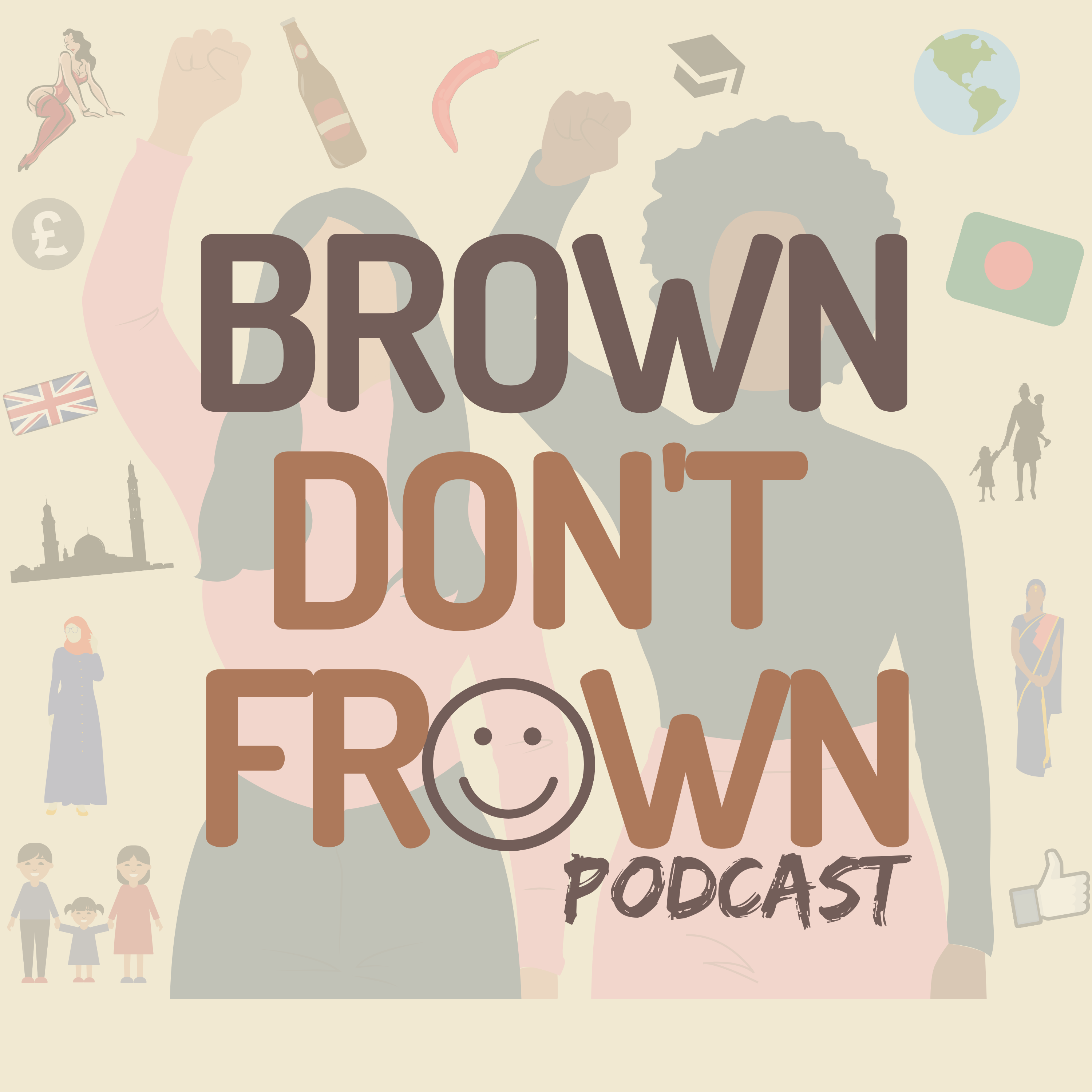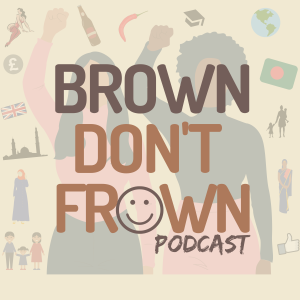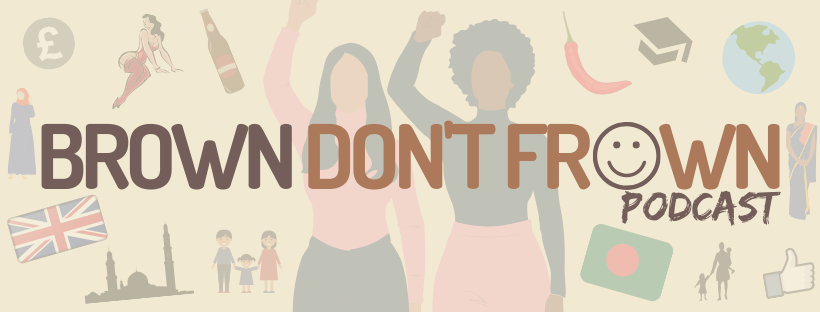
Brown Don't Frown was borne out of a personal journey with womanhood. As a British Bangladeshi, navigating mainstream Feminism often felt exclusionary to me because it didn’t seem to value the experiences or views which shaped my grandmother’s, aunts’, mother’s or friends’ lives. Through this podcast, we seek to build a more inclusive discourse, which breaks down presumptions about different cultures, and shines a positive light on the stories of underrepresented women. Featuring new guest(s) from different walks of life in each episode, Brown Don’t Frown seeks to engage ordinary women and facilitate openness towards entirely new perspectives. It hopes to spark honest and meaningful conversations about intersectional feminist themes in contemporary society with the acknowledgement that our views are shaped by our cultural, racial, religious, social and political experiences. Whether it's discussing society's preconceptions about the Hijab with a British-born Jamaican Muslim woman or examining the impact of gendered expectations on our ability to grieve on our own terms, we hope listeners finish each episode feeling more rounded than they did before. Follow us on: Instagram: https://www.instagram.com/browndontfrownpodcast/ Twitter: https://twitter.com/bdfpodcast?lang=en Facebook: https://www.facebook.com/browndontfrownpodcast LinkedIn: https://www.linkedin.com/company/browndontfrownpodcast
Episodes

Sunday Jun 28, 2020
Sunday Jun 28, 2020
Today, Busayo Twins and I discuss white denialism, colourism and the desensitisation of black trauma. Though minorities are grouped under ‘BAME’ for our ‘otherness’, it does not account for cultural, ethnic, religious and racial diversity. Does ‘BAME’ mask our lack of progression against anti-blackness? Busayo also explains why seeing Diversity & Inclusion policies as an ‘add on’ will not enable transformative change.
Black Lives Matter has empowered South Asian communities to challenge the stigma of dark skin. I ask Busayo whether she thinks it will also challenge the colourism faced within black communities and perceptions around skin-tone hierarchy for good.
There is a sense of numbness and desensitisation around black trauma. How can we collectively work together to change that? Does the narrative that only white people have the power to change things legitimise white superiority? Does it take away black people’s agency and undermine black excellence? We conclude that this way of thinking deflects from structural racism. While black people have leverage over their oppression with the power to change some things, black excellence and black struggle are not mutually exclusive. The change must be institutional.

No comments yet. Be the first to say something!